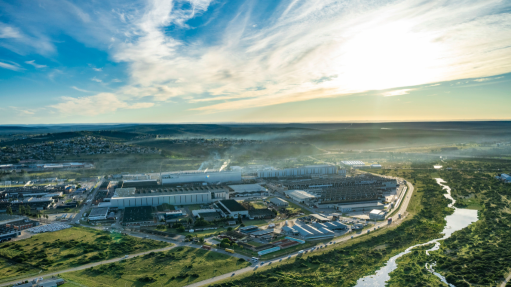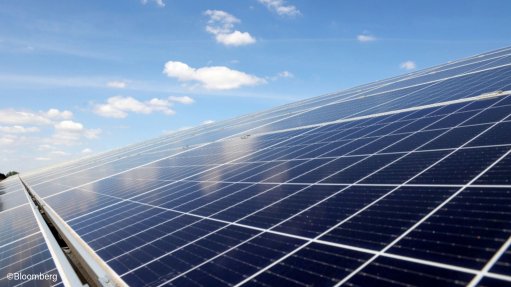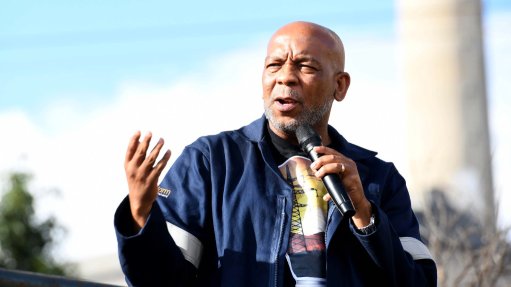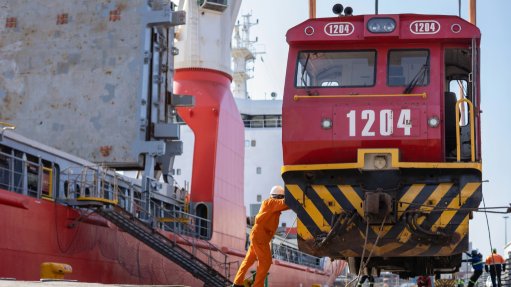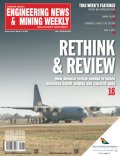GreenCape says climate finance is growing in South Africa, but more support is needed
A new report, titled 'South African Climate Finance Landscape' and published by GreenCape and the Bertha Centre for Social Innovation and Entrepreneurship, in partnership with the Climate Policy Initiative (CPI), shows that R62.2-billion has been invested in climate finance in South Africa for each of 2017 and 2018.
Nonprofit green economy organisation GreenCape says this is a baseline of what is possible in catalysing the financing and investments required to proceed towards a low-carbon and climate-resilient economy.
South Africa has been adopting a range of national and sectoral policies, plans and strategies that aim to decarbonise the economy and meet broad developmental objectives.
As the country moves to implement its national climate goals, it faces important domestic challenges that need to be addressed.
One of these key domestic challenges is the lack of climate finance data and analysis that is necessary to support national climate policy, mobilise public and private partnerships, and promote resilient economic growth.
“A clear understanding on the providers of climate finance, financial instruments used to channel investments, key sectors where finance is flowing, and the role of different stakeholders, can help to scale up investments to achieve South Africa’s Nationally Determined Contribution (NDC),” says CPI director Dr Angela Falconer.
GreenCape energy and green finance programme manager Jack Radmore says it was inspirational to see the amount of work that was already under way in the climate finance landscape in South Africa.
“Our analysis benefited from close dialogue and interaction about specific climate finance flows with the National Treasury, the Department of Environment, Forestry and Fisheries, fund managers, investors and industry experts.
“Experts in these organisations, and many other private and public stakeholders, were critical in helping us better understand the available data, and our work has benefited substantially from the many discussions,” he adds.
The South African Climate Finance Landscape report looks at detailed project-level data, understanding, in detail, the source, disbursement, instrument and use.
The insights can support public and private role-players with information to shape sectoral strategies and selected policies and improve coherence and coordination between public and private level spending in the sectors.
The sources of finance tracked included public finance, which was about R22-billion; private finance of about R35.3-billion; and blended finance of about R4.9-billion for 2017 and 2018.
The end-uses of the climate finance included mitigation activities, which accounted for 81% of the finance; adaptation activities, accounting for 7%; and dual benefit activities, which accounted for about 13%.
An International Finance Corporation study estimated that the total investment needed to achieve South Africa’s NDC is R8.9-trillion over a 15-year timeframe from 2015 to 2030.
This translates to a required annual investment of R596-billion to achieve South Africans NDC by 2030. This points to a rather substantial gap between required annual investment and actual tracked investment, reports GreenCape.
“There remains a clear need to move beyond business as usual, increasing annual investments into targeted sectors, if South Africa is going to achieve its agreed climate goals and initiate a genuine systemic transition across the economy,” says Bertha Centre for Social Innovation & Entrepreneurship senior project manager Natasha Dinham.
This is a baseline of what is possible in catalysing the financing and investments required to proceed towards the low-carbon and climate-resilient economy, which remains a vital challenge for the country, she adds.
The project team identified several challenges in creating a South African climate finance landscape and, although the numbers and trends identified represent the available data, further work is needed to continue to improve the accuracy of the South African climate finance landscape.
The report recommends that a process be launched to develop agreed-upon definitions of climate finance, with guidelines on tagging and tracking investments, while public-private coordination within South Africa must be improved as well.
The report also suggests that increased support is required for blended finance vehicles and development of innovative financial tools. Increased clarity and consistency around regulation is also needed, particularly for smaller climate sectors and subsectors.
“On the back of these foundational findings, more work is needed to establish a multistakeholder platform to better understand the role of public and private actors and to facilitate inter-Ministerial and cross-sectoral coordination and efforts to mainstream climate objectives,” states CPI senior analyst Chavi Meattle.
Comments
Announcements
What's On
Subscribe to improve your user experience...
Option 1 (equivalent of R125 a month):
Receive a weekly copy of Creamer Media's Engineering News & Mining Weekly magazine
(print copy for those in South Africa and e-magazine for those outside of South Africa)
Receive daily email newsletters
Access to full search results
Access archive of magazine back copies
Access to Projects in Progress
Access to ONE Research Report of your choice in PDF format
Option 2 (equivalent of R375 a month):
All benefits from Option 1
PLUS
Access to Creamer Media's Research Channel Africa for ALL Research Reports, in PDF format, on various industrial and mining sectors
including Electricity; Water; Energy Transition; Hydrogen; Roads, Rail and Ports; Coal; Gold; Platinum; Battery Metals; etc.
Already a subscriber?
Forgotten your password?
Receive weekly copy of Creamer Media's Engineering News & Mining Weekly magazine (print copy for those in South Africa and e-magazine for those outside of South Africa)
➕
Recieve daily email newsletters
➕
Access to full search results
➕
Access archive of magazine back copies
➕
Access to Projects in Progress
➕
Access to ONE Research Report of your choice in PDF format
RESEARCH CHANNEL AFRICA
R4500 (equivalent of R375 a month)
SUBSCRIBEAll benefits from Option 1
➕
Access to Creamer Media's Research Channel Africa for ALL Research Reports on various industrial and mining sectors, in PDF format, including on:
Electricity
➕
Water
➕
Energy Transition
➕
Hydrogen
➕
Roads, Rail and Ports
➕
Coal
➕
Gold
➕
Platinum
➕
Battery Metals
➕
etc.
Receive all benefits from Option 1 or Option 2 delivered to numerous people at your company
➕
Multiple User names and Passwords for simultaneous log-ins
➕
Intranet integration access to all in your organisation






